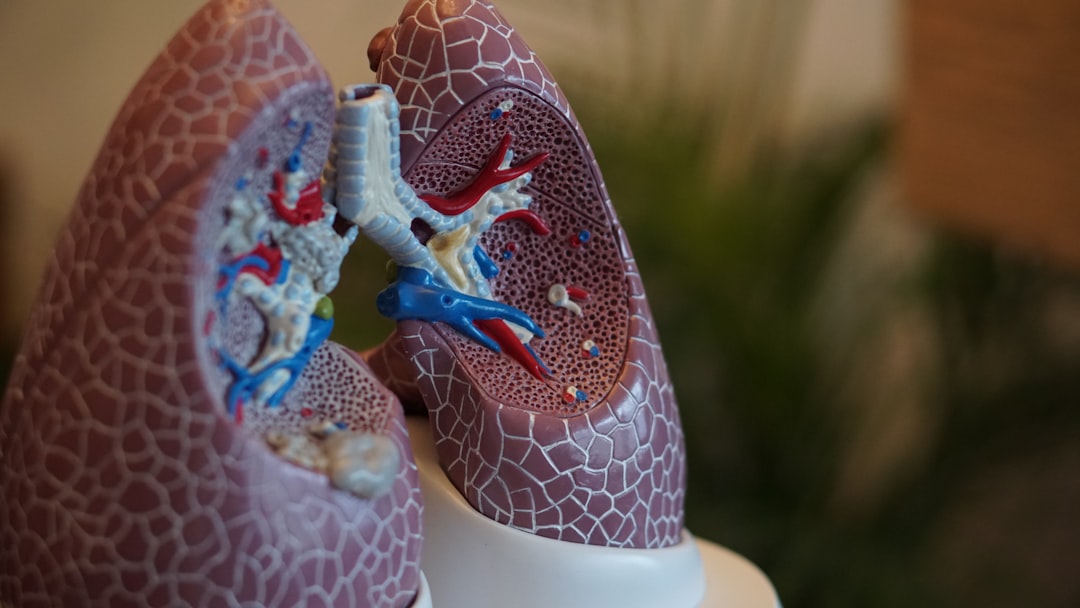3 Physical Signs Your Intuition Is Trying To Get Your Attention

Photo by Edz Norton on Unsplash
Originally published in Illumination.
Our bodies are full of innate wisdom as they carry our souls through life in the physical world.
They tell us when we are hungry, tired, sore, or energized. Our five physical senses let us explore the world, appreciating things like the taste of a decadent dessert, the smell of lilacs blooming in the springtime, or the softness of a dog's fur. They also tell us when we've been hurt, whether it be a physical burn to our skin from a hot stove or a metaphorically broken heart from a lost lover.
Our intuition, or our ability to immediately know something without conscious reasoning through instinct alone, can speak to us through our physical bodies.
If you struggle with listening to these intuitive instincts, a good first step is to get out of your head and into your body. Our intuition speaks to us through our physical bodies in many ways; here are the top three you can feel for.
You feel it in your stomach.
You've heard the phrase "gut feeling" before, right?
That phrase didn't come out of anywhere.
Our solar plexus chakra, located just above our belly button, is associated with the idea of a gut feeling.
It takes in the energy of the world around you and redistributes it to the rest of your body. Psychologically, it's associated with self-confidence. When you care for this part of yourself, you'll be able to navigate life with a confident sense of knowing. You will know what your gut is trying to tell you and when.
Feeling good about your decisions will feel like a calm, light, happy feeling in your gut as that light from your solar plexus radiates out. It gives you confidence in your decisions.
Your gut telling you something is wrong will translate as a tightness in your stomach, a resistance that feels like it's pulling you back inwards towards yourself. It may even translate as a sickly, nauseating feeling.
Learning to listen to your gut can be a good first step in listening to your intuition, tuning into the very center of your being.
Physically, the solar plexus chakra is associated with the pancreas, which drives metabolism and plays a role in digestion.
A good way to practice listening to your gut is tuning into your food…
When you are about to eat, sense how is your gut responding. Don't over-analyze with your head, quiet your mind and tune into the feelings brewing just above your navel.
What feelings are coming up in your stomach if you are about to consume a healthy, nutrient-dense, nourishing meal or a greasy burger and fries? Is it open and receptive, or nauseated, turning in on itself?
Not every unhealthy meal will necessarily make your stomach clench. We're human beings living in a modern society; sometimes, a burger and fries are what we need. When you are about to put food in your stomach, your body will respond either way. Start by learning to listen to these subtle cues, and you'll begin to tune into the concept of a "gut feeling."
You feel it in your heart.
Our hearts are the center of our being, our connections with the world around us, both physical and non-physical, and the driving force that guides us through life.
Without a heartbeat, we no longer live, literally. When we don't listen to our hearts, we don't live either, figuratively.
It is our spiritual centers as well as our physical centers.
An open, aligned heart chakra will feel warm and radiant like you are connected with the world and yourself. Life will flow. When blocked, you may feel the opposite.
A tightness in the chest can indicate fear, sadness, or grief. Just because you feel resistance in your heart doesn't mean you should run away from what's causing it. This is another sign our body is trying to tell us something. Your heart is sending a signal, using your body, your ultimate receptor of energy, that something needs your attention.
Often, what our heart tells us and what our heads tell us are not aligned.
We over-analyze decisions, events, and relationships. We take what our brains think we know, how we've already experienced the world, and apply that limited scope.
When we tune into our hearts, they can tell us what will bring love, joy, and connection. Does your job line up with what your heart wants? Do you believe in what you do for a living, or are you going against what your heart knows is true just to make a buck?
Your nervous system activates.
Our sympathetic nervous system is the part of us that activates the "fight, flight, or faint," response. It's responsible for reacting to potentially dangerous situations, sending obvious physical signs that our minds can interpret as something we need to pay attention to right now.
When you are hiking alone in the woods and stumble upon an angry predator, this part of you will activate. Blood will rush to the muscles in your limbs, preparing you for the impending fight or flee. Non-vital functions like digestion will shut down temporarily. Your pupils will dilate, giving you focus. Your heart rate speeds up. You are ready to face danger.
In modern society, we don't often have to worry about angry bears or mountain lions, so this system can become stimulated when we face a perceived threat, like an angry text from a partner or someone defending their political stance that goes against your own, or someone driving like a jackass on the freeway (okay, yes, sometimes that can be life-threatening, but not always).
An over-stimulated nervous system can feel like extreme physical or emotional discomfort.
You may feel anxiety, fear, or anger. Your throat and chest may tighten. Your muscles may twinge. Your thoughts may race to find the perfect (not-so-perfect) response, and you may even blurt out words before you've had a chance to discern your message.
Our intuition and nervous system are often linked. There are cases out there of people sensing imminent danger when they are seemingly in a calm, safe situation, only to find out a loved one needs their help.
In this case, Gemma Houghton got an unshakable feeling her twin sister, Leanne, was in danger. She burst into the bathroom to find Leanne unconscious underwater in the bath after having a seizure. Twins will often report telepathic-like links with one another.
In my own experience years ago, I was hiking by myself up in the foothills outside Boulder when I lived in Colorado. I was about four miles into a hike when I had a sudden urge to turn around. I stopped for a moment, considering the feeling.
"I still have time," I thought to myself.
As I took another step, I remember my muscles tightening up.
"Okay, I'll turn around," I told myself, and as I did, the feeling subsided, and I retraced my steps back to my car.
I couldn't tell you what it was that made me turn around, as I listened to the cues from my body when I needed to and didn't face any real or perceived threat. I have hypothesized that perhaps there was a mountain lion nearby or a mama bear with cubs. Or perhaps it was a serial killer. I couldn't tell you, but the sudden, inexplicable activation of my sympathetic nervous system immediately told me not to continue on this path. I listened, and I'll never regret that.
Learning the physical and mental signs of a stimulated sympathetic nervous system is a key tool in listening to our bodies.
When these symptoms come up…
- Focus on your breath, the physical inhales and exhales of air. Try to regulate your breath using the 4–7–8 breathing technique, which is known to activate your parasympathetic nervous system (the part of your nervous system responsible for rest, digest, and relaxation). If your parasympathetic nervous system is activated, the sympathetic nervous system deactivates. This involves an inhale for four counts, holding for seven counts, and exhaling for eight counts. Repeat four times, then check in with your body. Are you feeling calmer? Continue until your sympathetic nervous system calms down.
- Don't give your thoughts your power. Your mind will race, and the first thoughts that come up may be ones to defend yourself. Is blurting out your first thoughts during a confrontation help or hinder the situation? You can't stop thought itself, so bring your focus back to your breath, and let your thoughts do their thing as your body calms. If your sympathetic nervous system is becoming active due to a confrontation of sorts, step away from the situation before responding. When you've come up with a response, tune into your gut and your heart to see if it's the right response.
- If the anxiety is overpowering, you can try the 5–4–3–2–1 coping technique. Notice five things in your surrounding area that you can see. Then look for four things you can touch. Find three things you can hear. Look for two things you can smell and, finally, one flavor that you can taste.












If you enjoyed this article or recipe, please consider giving it a comment! It helps others discover my blog and recipes, and your comments always make my day :) Thank you for your support!
Your email address will not be published. Required fields are marked *